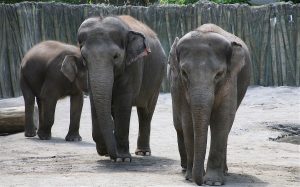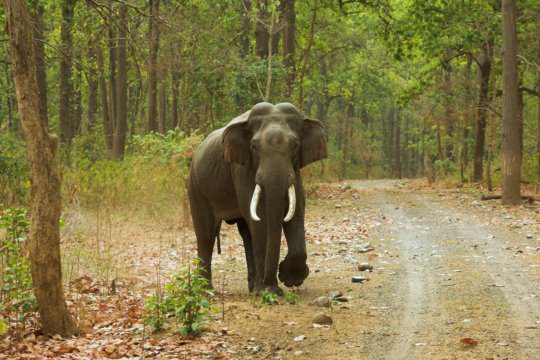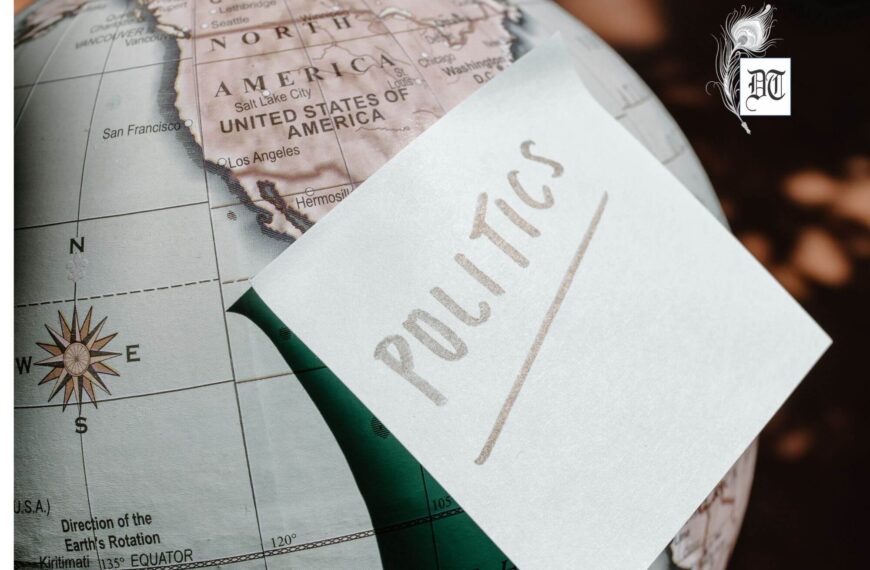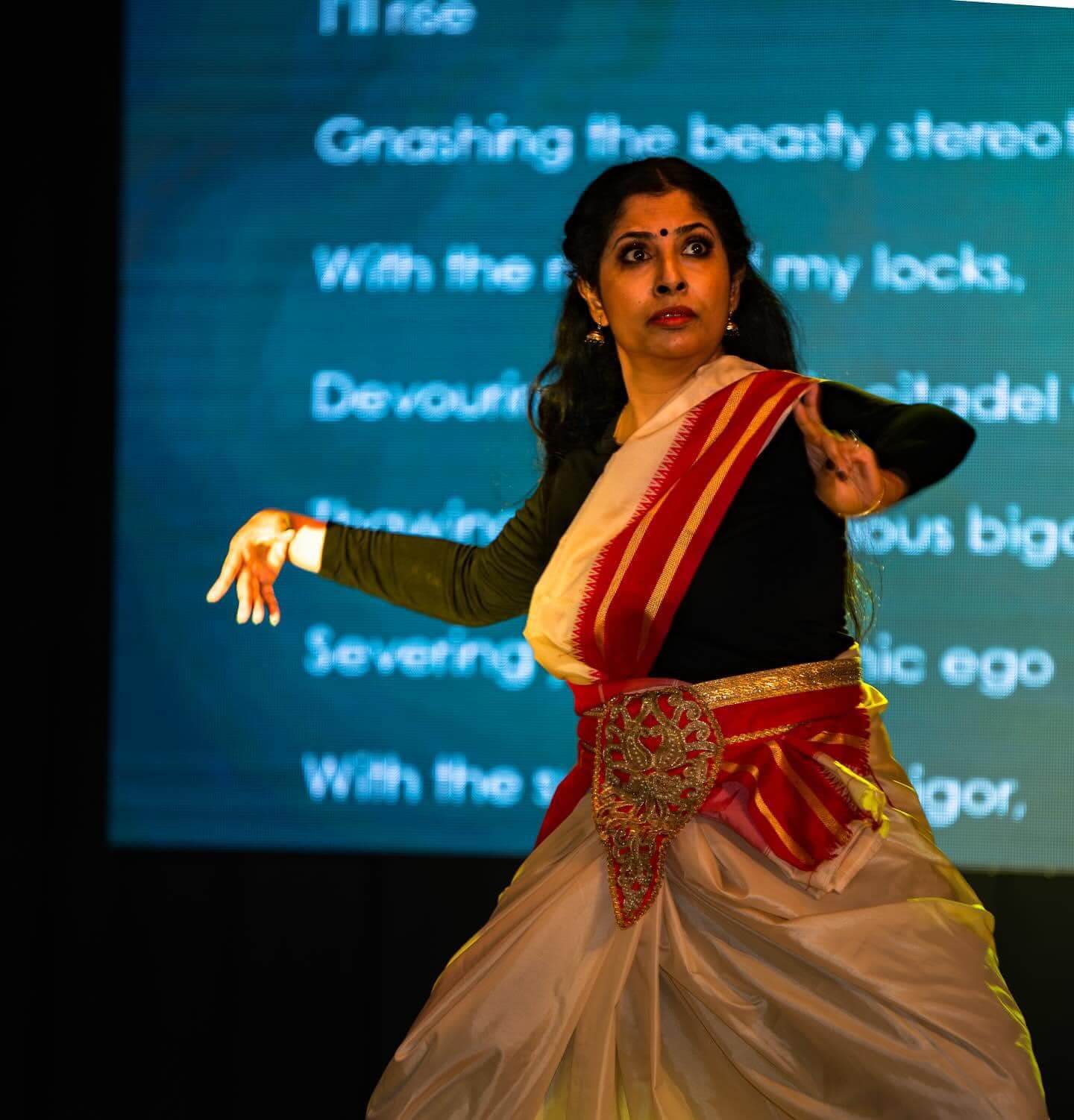Radhika tells us about the time she spent with elephants, exclusively for Different Truths.
 If you live in India, it is inevitable that sooner or later, you will come across an elephant, if not in the jungle then on the city streets. Braving traffic and the sound of babies crying, blaring horns, engines revving, hawkers calling out to passersby to buy street food, or clothes made in China, fake designer watches or secondhand books, among other things. You get the picture.
If you live in India, it is inevitable that sooner or later, you will come across an elephant, if not in the jungle then on the city streets. Braving traffic and the sound of babies crying, blaring horns, engines revving, hawkers calling out to passersby to buy street food, or clothes made in China, fake designer watches or secondhand books, among other things. You get the picture.
If on the other hand, you are lucky to see an elephant in its element in nature, you would never forget the experience. The first feeling is that of awe, followed by respect. Somehow a wild elephant reminds us of its power, beauty and uniqueness more than its captive counterpart. There is no such thing as a domestic elephant as an elephant is forever wild. Which is why they have to be chained and shackled and beaten into submission to make them “behave”. It is not until their beautiful spirit is literally broken and that’s what they call it, “breaking the spirit” that they can control it. Literally.
But not being as wise as I am today, I have made the error of riding an elephant as a kid. Not knowing the full extent of the pain that the poor animal goes through. Though I remember feeling his skin with my hands and trying to show my love to him somehow, hoping that he would feel it.
I remember feeding bananas to elephants begin on the street and how much I wanted the elephant to like me back. For me, an elephant’s approval meant a lot more than most people’s. I think it still does.
Many years later, in Kaziranga, I saw herds of wild elephant walking purposefully and powerfully through the tall grasses and I was in love.
Soon after, I was lucky enough to spend a month is a wildlife rescue center, working with orphan elephant calves being hand raised for rehabilitation to the wild. Each morning, I would help make the formula milk for the elephant calves who would be calling out loudly for their food. We would then feed them with big bottles full of milk, as they sucked greedily. Later in the morning, I would go with the elephant calves and the elephant keepers into the Reserve forest adjacent to the center. This was part of the process of teaching them the ways of the wild. I learnt to keep a respectful distance and a watchful, protective eye over them at the same time. I would climb trees and sit on the “machans” while the elephants browsed around for food.
with orphan elephant calves being hand raised for rehabilitation to the wild. Each morning, I would help make the formula milk for the elephant calves who would be calling out loudly for their food. We would then feed them with big bottles full of milk, as they sucked greedily. Later in the morning, I would go with the elephant calves and the elephant keepers into the Reserve forest adjacent to the center. This was part of the process of teaching them the ways of the wild. I learnt to keep a respectful distance and a watchful, protective eye over them at the same time. I would climb trees and sit on the “machans” while the elephants browsed around for food.
Those were beautiful days, when we would return in the afternoon and take the elephants for a dip in the water hole. What fun would ensue, with the calves jostling, shoving each other, splashing water and mud and later exploring my face, my clothes and my hair with the same trunks, leaving me tickled, mud covered and happy.
I remember one morning over all others when it was my birthday and I had stayed awake the whole night before to see the sunrise. With the first light of day, I had a strong urge to go by the elephant enclosure to have a look at them. A beautiful sight awaited me with all six calves standing in a snug line, side by side, with their bodies huddled as they slept soundly. Everything was quiet and there was just me admiring these baby elephant as they slept. I would give a lot to go back there in that moment.
 I’m reminded of the story of the three blind men and the elephant where each blind man feels a different part of the elephant’s body, but only one part, such as the side or the tusk. They then describe the elephant based on their limited experience and their descriptions of the elephant are completely different from each other.
I’m reminded of the story of the three blind men and the elephant where each blind man feels a different part of the elephant’s body, but only one part, such as the side or the tusk. They then describe the elephant based on their limited experience and their descriptions of the elephant are completely different from each other.
Just the same way, we tend to be blind to the depth, wisdom, strength and love that elephants embody as sentient beings, until we finally observe them in their true state in nature. It is only then that we can relate to the suffering these animals are subjected to by humans and there is always the hope that the pain may spark us into action to do our bit to protect them from any further harm. All said and done, in the end, the truth is that all good things, are wild and free and even though they say an elephant never forgets, you never forget an elephant either.
Photos from the Internet





 By
By
 By
By

Radhika-When I was growing up I heard stories about elephantine memory-wonderful write up. Loved it.